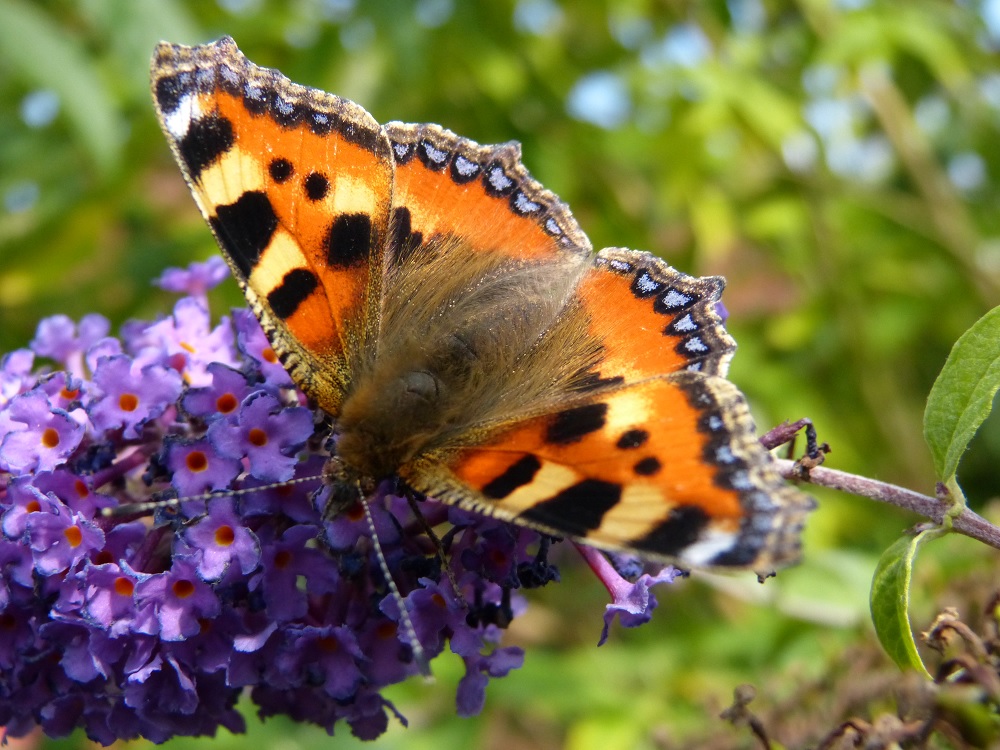75% fall in Welsh insect numbers ‘potentially catastrophic’ say scientists

A project asking people to count squashed bugs on their car number plates suggests flying insects have declined by a “potentially catastrophic” 75% in Wales in less than 20 years.
The citizen science Bugs Matter survey, led by conservation charities Kent Wildlife Trust and Buglife, found a 64% decline in insect numbers splatted on vehicle number plates between 2004 and 2022 across the nations UK.
Wales saw the biggest decrease with a 75% fall in bug splat numbers this summer, significantly worse than 2021’s 55% fall, compared to 2004 figures.
England saw a 68% reduction compared to 2004, seven percentage points worse than the 61% fall in 2021.
But Scotland saw something of a reversal in the trend, with a 40% decrease when compared to 2004, better than the figures for 2021 where there was a 49% fall on 2004 numbers.
Experts said it was not clear what proportion of the drop between 2021 and 2022 was due to long-term trends or the result of record summer temperatures, but suggested climate change had a role in both issues.
The conservation groups said insects provided essential services, underpinning food chains, pollinating most of the world’s crops and providing natural pest control and that without them, the ability of humans to survive on Earth would be under threat.
They are in decline due to loss and damage of habitats, climate change, pollution of rivers and streams, pesticide use, and development – with growing evidence these have caused significant drops in insect numbers in the UK and worldwide, the conservationists warned.
The now-annual survey asked members of the public to record the number of flying insects squashed on their number plate, and compared it to data from an RSPB analysis in 2004 which used the same methods.
Before making an essential journey in their vehicle, drivers cleaned their number plate, recorded the route on their mobile phone, and afterwards counted the insects squashed on it using a “splatometer grid” supplied as part of the survey.
They then submitted a photo and count details via the Bugs Matter app and the data was converted into “splats per mile” to make it comparable between journeys.
‘Concerning’
The findings were released as ministers gather in Montreal for the UN Cop15 nature summit, aimed at agreeing a deal to halt and reverse wildlife and habitat losses by 2030.
Andrew Whitehouse, head of operations at Buglife, said: “For the second year running, Bugs Matter has shown potentially catastrophic declines in the abundance of flying insects.
“Urgent action is required to address the loss of the diversity and abundance of insect life.
“We will look to our leaders at Cop15 for decisive action to restore nature at scale – both for wildlife, and for the health and well-being of future generations.”
Evan Bowen-Jones, chief executive at Kent Wildlife Trust, said: “Thanks to citizen scientists across the country, we are building a better picture of the health of our insect populations and already we are seeing some concerning patterns in the data.
“However, we need more citizen scientists to take part in the Bugs Matter survey next year and into the future, to understand whether we are seeing actual long-term trends or the impact of the extreme temperatures we faced in 2022.
“Thank you to everyone who took part in this year’s survey. We hope even more citizen scientists will contribute to this valuable dataset in the 2023 survey period and beyond.”
The conservationists say ways to help insects include putting away pesticides, being less tidy in the garden to provide more habitat for them, use alternatives to peat to slow climate change and take steps to cut your carbon footprint.
The 2023 survey will begin on June 1 next year, and people can download the free app now to sign up.
Support our Nation today
For the price of a cup of coffee a month you can help us create an independent, not-for-profit, national news service for the people of Wales, by the people of Wales.






Either this, or insects in Cymru (I don’t think insects recognise national borders) have evolved to the stage where they have learned to avoid the noisy smelly long black rocks of death. Because out hiking I can tell you for a fact that midges, gnats, horseflies etc have not declined at all. Also this year, our garden was permanently occupied by bees, wasps, hover flies, moths, butterflies and other pollinators. Bats and certain bird species who predate on bugs are a better indicator species for insect biomass. Not saying the report is wrong, but I challenge the reliability of using… Read more »
Have I upset someone again today? I mean they’re only downvotes but I’ve not written anything remotely offensive today. Some people are too emotionally fragile for the internet 🙄
You can thank the Welsh Gov drive to make the NRW even more impotent than usual for that statistic.